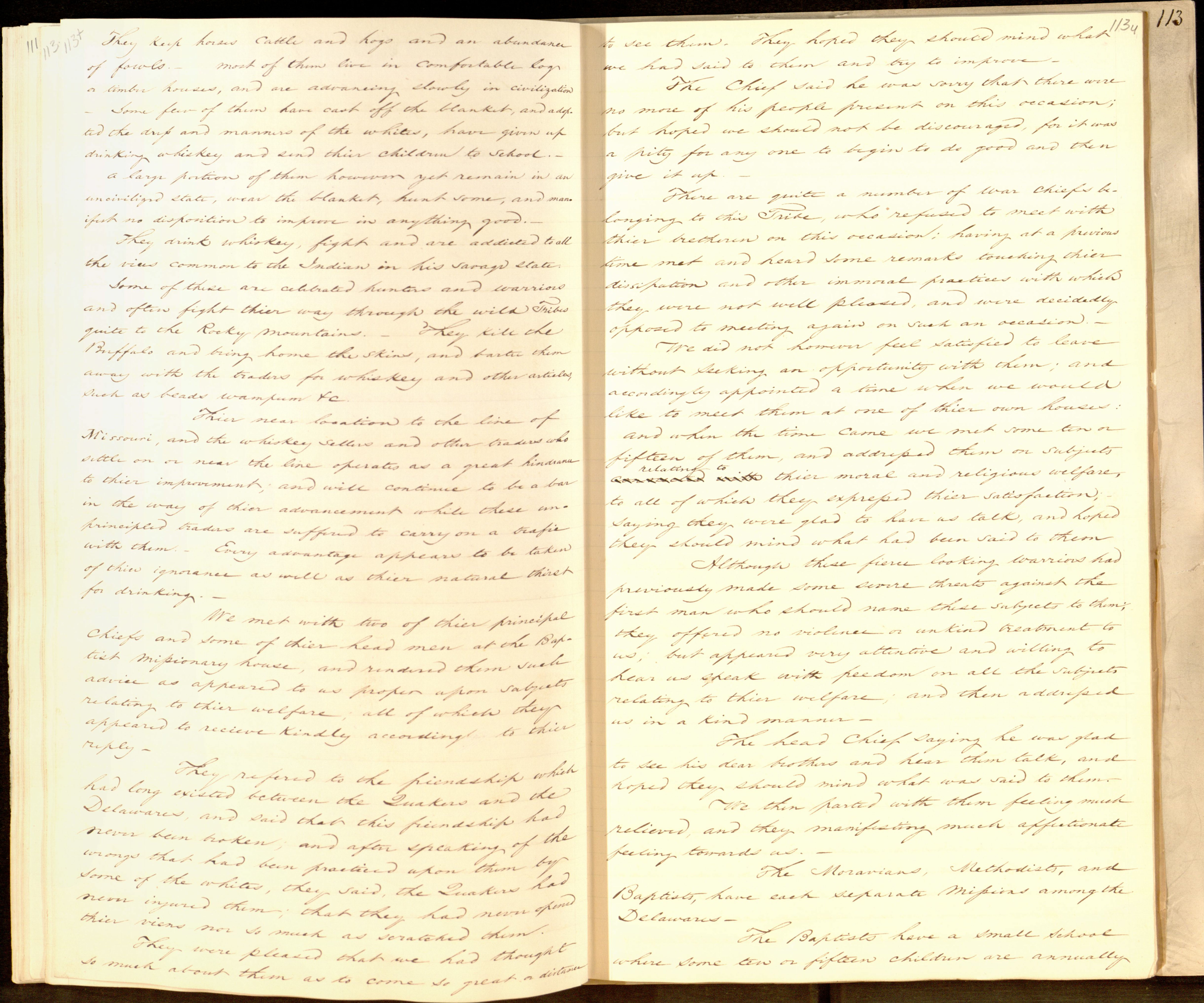They keep horses cattle and hogs and an abundance
of fowls. Most of them live in comfortable log
or timber houses, and
are advancing slowly in civilization.
Some few of them have cast off the
blankey, and adop-
ted the dress and manners of the whites, have given up
drinking whiskey and send thier children to school--
a large portion
of them however yet remain in an
uncivilized state, wear the blanket, hunt
some, and man-
ifest no disposition to improve in anything good.
They drink whiskey, fight and are addicted to all
the views common to the
Indian in his savage state.
Some of these are celebrated hunters and warriors
and often fight thier way
through the wild Tribes
quite to the Rocky
Mountains
Buffalo
away with the traders for whiskey and other articles,
such as beads wampum &c.
Thier near location to the line of
Missouri
settle on or near the line operates as a great hindrance
to thier improvement; and will continue to be a bar
in the way of thier advancement while these un-
principled traders are suffered to carry on a trafic
with them. Every advantage appears to be taken
of thier ignorance as well as thier natural thirst
for drinking.
We met with two of thier principal
Chiefs and some of thier head men at the
Bap-
tist
advice as appeared to us proper upon subjects
relating to thier welfare; all of which they
appeared to recieve kindly according to thier
reply.
They refered to the friendship which
had long existed between the Quakers
and the
Delawares
never been broken; and after speaking of the
wrongs that had been practiced upon them by
some of the whites, they said, the Quakers had
never injured them; that they had never opened
thier viens nor so much as scratched them.
They were pleased that we had thought
so much about them as to come so great
a distance
to see them. They hoped they should mind what
we had
said to them and try to improve.
The chief said he was sorry that there were
no more of his people present on
this occasion;
but hoped we should not be discouraged, for it was
a
pity for any one to begin to do good and then
give it up.
There are quite a number of was chiefs be-
longing to this Tribe, who
refused to meet with
thier brethren on this occasion; having at a previous
time met and heard some remarks touching thier
dissipation and other
immoral practices with which
they were not well pleased, and were decidedly
opposed to meeting again on such an occasion.
We did not however feel satisfied to leave
without seeking an opportunity
with them; and
accordingly appointed a time when we would
like to meet
them at one of thier own houses:
and when the time came we met some ten
fifteen of them, and addressed them on subjects
relating to
thier moral and religious welfare,
to all of which they expressed thier
satisfaction;
saying they were glad to have us talk, and hoped
they
should mind what had been said to them.
Although these fierce looking warriors had
previously made some secere
threats against the
first man who should name these subjects to them;
they offered no violence or unkind treatment to
us; but appeared very
attentive and willing to
hear us speak with freedom on all the subjects
relating to thier welfare; and them addressed
us in a kind manner.
The head Chief saying he was glad
to see his dear brothers and hear them
talk, and
hoped they should mind what was said to them.
We them parted with them feeling much
relieved, and they manifesting much
affectionate
feeling towards us.
The Moravians
Baptists
Delawares
The Baptists
where some ten of fifteen children are annually

